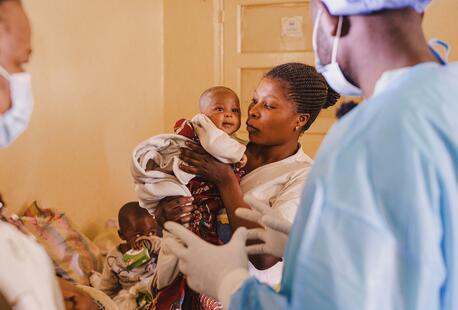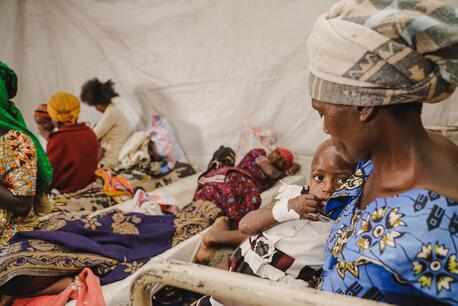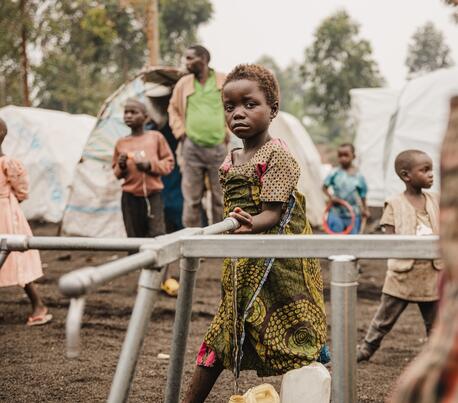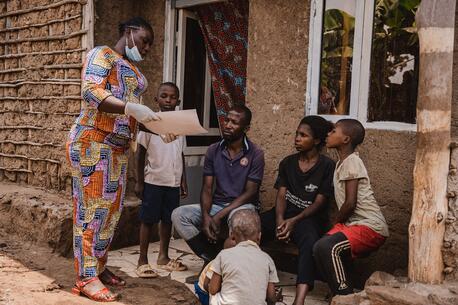
Mpox Vaccination Begins in DRC with UNICEF's Help
While helping to advance vaccination as part of the emergency response to the mpox outbreak in Africa, UNICEF stresses the importance of other key infection prevention and control measures.
Mpox vaccines have arrived in the Democratic Republic of the Congo, the epicenter of Africa's mpox outbreak.
With support from UNICEF and partners, the DRC Ministry of Public Health and Prevention began vaccinating people on Oct. 5, starting with frontline health workers and other vulnerable groups in North Kivu and expanding into other high-priority provinces within a matter of days.
Watch the video:
A total of 265,000 doses of the MVA-BN mpox vaccine arrived in Kinshasa in September, donated by the European Union, United States Government and Gavi, with support from Africa CDC.
UNICEF organized the shipment, custom clearance and delivery, storage and domestic transport.
“The start of the vaccination campaign is a very welcome development and means we are one step closer to bringing this outbreak to an end,” said UNICEF DRC Representative Grant Leaity. “But I must stress that vaccines are just one tool at our disposal."
Since January through the end of September, DRC has recorded over 30,000 suspected cases of mpox and more than 900 deaths. Children under 15 are particularly affected by the outbreak, accounting for roughly 60 percent of mpox cases and 80 percent of mpox deaths.
UNICEF has been on the ground assisting the government-led response — helping to provide people with information about symptoms and what to do when they or someone they know fall ill and supporting infection prevention and control measures in health care centers, schools and communities.
Since January through the end of September, DRC has recorded over 30,000 suspected cases of mpox and more than 900 deaths. Children under 15 are particularly affected by the outbreak.
There are two approved mpox vaccines. The MVA-BN vaccine will be used to vaccinate adults. UNICEF recently signed a deal that secures the lowest market price for the MVA-BN and ensure access to 77 low and lower-middle-income countries.
For the DRC vaccination campaign, the most vulnerable people will be vaccinated first. In addition to health care workers, the first wave of vaccinations will target people who have been exposed to those who have already contracted the disease and people with compromised immune systems.
Soon the DRC will receive the second type of mpox vaccine, the LC-16, which has the potential to protect children. "As this outbreak is affecting children in particular, we're looking forward to exploring options for vaccines which will protect children from illness, pain and discomfort, and even death," Leaity said.
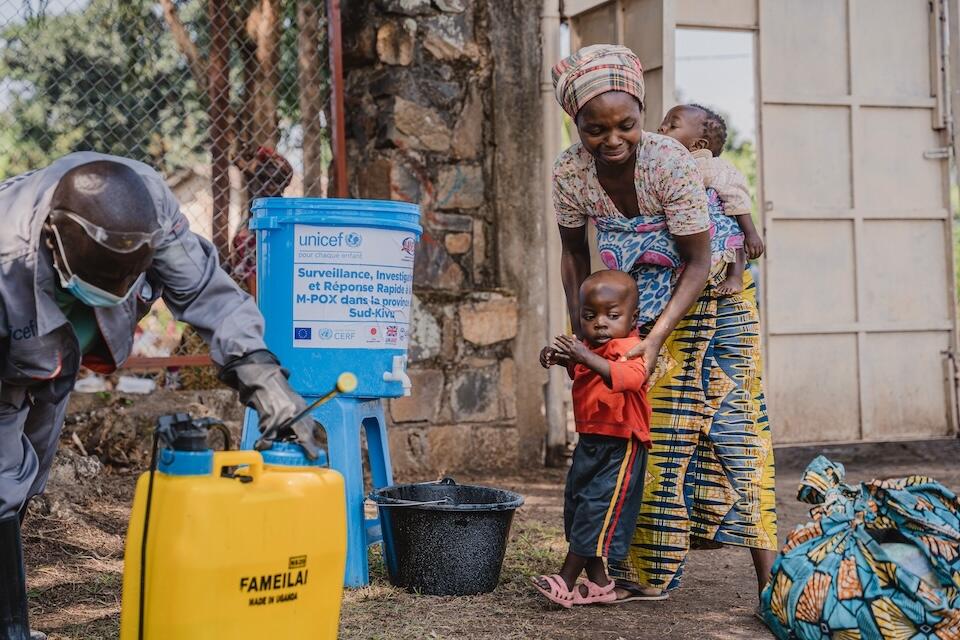
Deprivation and hardship, malnutrition and disease are already common challenges for many children and families in DRC. UNICEF is aligning its mpox response efforts with existing humanitarian programs in the country that aim to address pre-existing humanitarian needs in DRC, while increasing efforts to strengthen the nation's health, water and sanitation systems as a way to sustainably address the underlying causes of the outbreak — and to prevent future ones.
UNICEF works with partners in over 190 countries and territories to ensure that every child can grow up healthy. Support UNICEF. Donate today.
HOW TO HELP
There are many ways to make a difference
War, famine, poverty, natural disasters — threats to the world's children keep coming. But UNICEF won't stop working to keep children healthy and safe.
UNICEF works in over 190 countries and territories — more places than any other children's organization. UNICEF has the world's largest humanitarian warehouse and, when disaster strikes, can get supplies almost anywhere within 72 hours. Constantly innovating, always advocating for a better world for children, UNICEF works to ensure that every child can grow up healthy, educated, protected and respected.
Would you like to help give all children the opportunity to reach their full potential? There are many ways to get involved.



